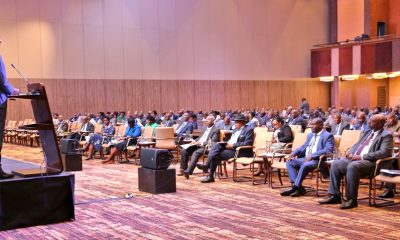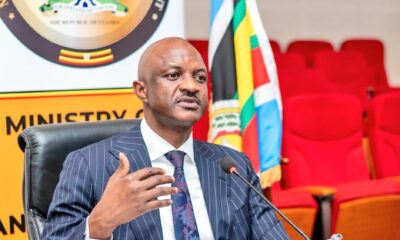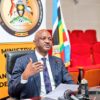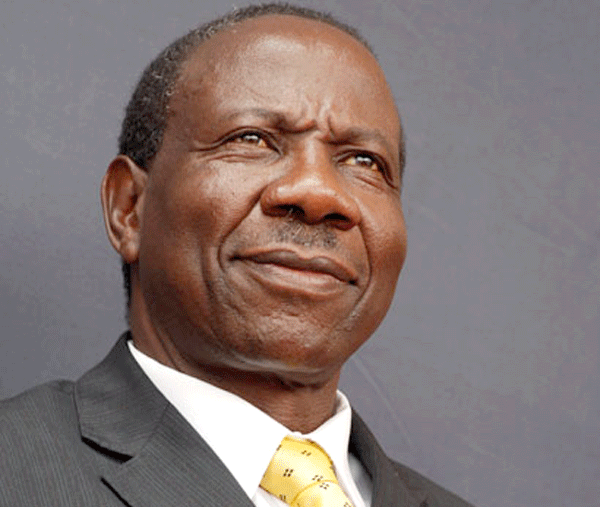Columnists
Mr. President, close Government
Your government has become as fiscally reckless as the past governments it fought!
On Monday this week, Ugandans woke up on a big headline on top of Government-owned newspaper, The New Vision. “Government to Borrow to Pay Salaries,”the headline screamed.
I ignored it since it sounded sensational and ridiculous, being on top of the state newspaper notwithstanding. However, the following day something astonishing happened. Finance Minister, Matia Kasaija, called a press conference where he made claims that The New Vision was not accurate since not all the money that were to be borrowed was needed to pay salaries of public servant.
“Only Shs. 48 billion (out of the Shs. 736 billion) will be borrowed for paying salaries,” Kasaija explained with his face looking straight in the cameras. I was hosted (twice) on NBS Television to make sense of this move by government.
I said, “It would not make economic sense for government to borrow even one shilling to pay salaries.”
A few hours later, Mr. Ofwono Opondo, the Government Spokesman, responded to my opinion (via twitter) saying, “Borrowing for salaries is good economics because adequate salaries enhance the purchasing power of workers who then will have effective demand for goods and services when generated internally, and that should lead to economic growth.”
Ofwonomics
Ofwono is not an economist. Yet in that statement, he used a lot of economic facts and theories to defend an empirically wrong thing. Far from ridiculing Mr. Ofwono’s mastery of economics, his statement raised a lot of questions in my head.
Where did he get these facts? Why did he use them wrongly? Could this be the official government position such that economists at Ministry of Finance coached him to state it that way?
Do I even need to bother my head asking questions like these when the Minister issued a statement that suggested that since the amount that would go to salary was small, then there is no harm borrowing to pay salaries?
Recently I learned something called ‘reasonable man test’ – before you take a decision that involves using public resources or someone else’s resources, ask yourself: “would I do the same if the money was mine?”
Charles Onyango-Obbo helped me put ‘reasonable man test’ to practical use. He twitted, “Well, I can only say I know my friend [Ofwono Opondo] – at a personal level – he is smart enough not to borrow to pay his housekeeper and gardener, because he knows that is very problematic.”
How did we get here?
But what exactly is going on in our country? Why have we reached the point where government cannot fund recurrent expenses without borrowing? Mr. President, how did we get here?
Why is it that, for example, every single public servant in Uganda is expecting a pay rise? Government is under pressure to enhance public servants’ salaries. In real terms the median earnings of a typical public-sector worker have stagnated for decades.
In the meantime, a few ‘special public employees’ working in semi-autonomous agencies of government such as Bank of Uganda (BoU), Kampala Capital City Authority (KCCA), Uganda Revenue Authority (URA), Uganda National Roads Authority (UNRA), Uganda Communications Commission (UCC), and others have increased their monthly earnings by over ten-fold.
Workers in certain professions have fared especially badly. Medical workers, Police and military officers, particularly those at lower ranks, and other civil servants have seen their pay fall by a good percentage in real terms over the past few years. Yet they go to the same markets and schools where their best paid colleagues in autonomous agencies buy or take children respectively.
Recent studies by the Equal Opportunities Commission have indicated that a typical civil servant working in the mainstream public service earns 10 times lower than their colleagues working in agencies with similar qualifications and duties.
“Close down some ministries and walk”
Mr. President, I thought it was this alarming reality that forced you, in July last year, to write to your government demanding for practical solutions to rationalize government. I remember in that letter you gave your colleagues up to December 2017 to find a solution. What happened? We are in 2018 sir.
Your government is bloated. The size of civil service has grown to over 300,000 from 158,000 in 1997. Most agencies spend over two thirds of their budgets on salaries and allowances. Is this sustainable?
We all know that in the foreseeable future, finding extra cash to pay salaries will not be easy. Salaries can only be enhanced using funded within existing budgets. That means government must cut spending on some activities. I know rolling out such a strategy across the public sector will be painful, but it has become inevitable.
The good thing this is not news for NRM/NRA Government. It has been done before, and the results were very good. Mr. President, beginning in 1992 your government took a decision to restore fiscal discipline.
In your speech after presentation of 1992/93 budget you explicitly mandated a matching of spending to resources. You said, “There will be no inflation. Inflation is indiscipline. If there is no money then we will close down some ministries and walk.”
Fiscal indiscipline
You merged ministries, beginning with the then Ministry of Finance with that Economic Planning and Development to ensure tight management of the budget. This is the kind of commitment to the national interest which put Uganda back on the recovery track.
Today, fiscal indiscipline has resurfaced. Your government has grown like a Leviathan. I have always questioned the logic of having a legislature of over 400 MPs (we are currently expanding the parliamentary chambers), a cabinet of over 70 ministers, a stadium of RDCs, an extensive list of presidential advisers and other hangers-on, an extensive local government spread around 120 districts, and a civil service of over 300,000 people. All depending on tax revenue generated by this small and shrinking economy.
I have on several occasions put it to you Mr. President that your government has become as fiscally profligate as those governments you fought. You often say since now the resource envelope has expanded, you can afford all these huge expanses.
It is Will Rogers who once said, “The quickest way to double your money is to fold it over and put it back in your pocket.” The wisdom behind Rogers’ maxim is that wealth accumulation is not necessarily as a result of amassing a lot of money or working so hard, rather saving is the key.
The secret to saving is to disobey (Northcote) Parkinson’s Law, which states that “expenses rise to meet income.” Mr. President, as long as your government continues to spend on unproductive ventures, however much the resource envelope grows we shall not be able to accumulate national wealth.
Institutional crisis
And indeed it is well known that it is fiscal and monetary discipline, restored by your government in early 1990s that turned Uganda’s economy in a solid performance with inflation reducing from 108% in 1992 to a single digit averaging 5%.
Fiscal discipline after 1992 also saw the economy grow at an average rate of 7.5%, poverty reducing from 56% in 1990, and GDP per capita growing by over 3.5% in real terms. Since fiscal indiscipline resumed, beginning in 2006, all these achievements have reversed. The economy stopped growing, the shilling lost a lot of value, poverty has increased, and household incomes have stagnated.
It is Jared Diamond, who in his 2005 book, “Collapse”, said that countries choose either to fail or to succeed. Mr. President, I trust freedom fighters cannot choose to fail.
In 2008, your government hired a UK based consultancy firm, the Oxford Policy Management, to evaluate the Poverty Eradication Action Plan (PEAP) and find out why it had failed so that the country could avoid the mistakes as it reverted to national development plans.
The investigators identified an institutional disease in Uganda — lack of collective decision-making at the political level. They also talked of the bad habit of indecisiveness when it comes to taking urgent decisions.
Mr. President, you need to reflect on some of these issues and appeal to your guile to reconsider some of them. It is time you reflected on your approach, rethink the caliber of people you work with.
You cannot afford to lament how your government is too slow to act on the numerous simple things that can easily be done to make a difference. My honest view is that like you did in early 1990s, you need to close government and reopen it with a fresh army of leaders and technocrats who subscribe to the economics that works. Uganda has them in droves, thanks to years of liberal education your government ushered in.
Comments























